 W
WThe history of logic deals with the study of the development of the science of valid inference (logic). Formal logics developed in ancient times in India, China, and Greece. Greek methods, particularly Aristotelian logic as found in the Organon, found wide application and acceptance in Western science and mathematics for millennia. The Stoics, especially Chrysippus, began the development of predicate logic.
 W
WRichard Ithamar Aaron, was a Welsh philosopher who became an authority on the work of John Locke. He also wrote a history of philosophy in the Welsh language.
 W
WAnalytic philosophy is a branch and tradition of philosophy using analysis, popular in the Western World and particularly the Anglosphere, which began around the turn of the 20th century in the contemporary era in the United Kingdom, United States, Canada, Australia, New Zealand and Scandinavia and continues today. Writing in 2003, John Searle claimed that "the best philosophy departments in the United States are dominated by analytic philosophy."
 W
WAntisthenes was a Greek philosopher and a pupil of Socrates. Antisthenes first learned rhetoric under Gorgias before becoming an ardent disciple of Socrates. He adopted and developed the ethical side of Socrates' teachings, advocating an ascetic life lived in accordance with virtue. Later writers regarded him as the founder of Cynic philosophy.
 W
WAristotelianism is a philosophical tradition inspired by the work of Aristotle, usually characterized by deductive logic and an analytic inductive method in the study of nature and natural law. It answers why-questions by a scheme of four causes, including purpose or teleology, and emphasizes virtue ethics. Aristotle and his school wrote tractates on physics, biology, metaphysics, logic, ethics, aesthetics, poetry, theatre, music, rhetoric, psychology, linguistics, economics, politics, and government. Any school of thought that takes one of Aristotle's distinctive positions as its starting point can be considered "Aristotelian" in the widest sense. This means that different Aristotelian theories may not have much in common as far as their actual content is concerned besides their shared reference to Aristotle.
 W
WBernard Bolzano was a Bohemian mathematician, logician, philosopher, theologian and Catholic priest of Italian extraction, also known for his liberal views.
 W
WBoolean logic is a system of syllogistic logic invented by 19th-century British mathematician George Boole, which attempts to incorporate the "empty set", that is, a class of non-existent entities, such as round squares, without resorting to uncertain truth values.
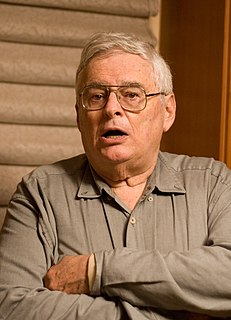 W
WJerry Alan Fodor was an American philosopher and the author of many crucial works in the fields of philosophy of mind and cognitive science. His writings in these fields laid the groundwork for the modularity of mind and the language of thought hypotheses, and he is recognized as having had "an enormous influence on virtually every portion of the philosophy of mind literature since 1960." Until his death in 2017 he held the position of State of New Jersey Professor of Philosophy, Emeritus, at Rutgers University.
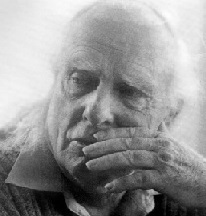 W
WHerbert Paul Grice, usually publishing under the name H. P. Grice, H. Paul Grice, or Paul Grice, was a British philosopher of language. He is best known for his theory of implicature and the cooperative principle, which became foundational concepts in the linguistic field of pragmatics. His work on meaning has also influenced the philosophical study of semantics.
 W
WImmanuel Kant was a German philosopher and one of the central Enlightenment thinkers. Kant's comprehensive and systematic works in epistemology, metaphysics, ethics, and aesthetics have made him one of the most influential figures in modern Western philosophy.
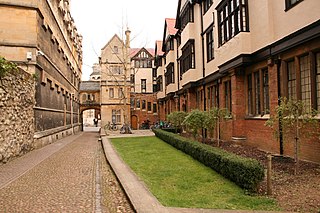 W
WLogic Lane is a small historic cobbled lane that runs through University College in Oxford, England, so called because it was the location of a school of logicians. It links the High Street at the front of the college with Merton Street to the rear, which is also cobbled. Logic Lane covered bridge is a short covered bridge over the lane at the High Street end. To the west of the lane are the Radcliffe Quad and the Master's Lodgings. To the east are the 1903 Durham Buildings and the Goodhart Quad. The lane is locked at night, with gates at each end. It is mainly used by pedestrians, but vehicular access is possible.
 W
WMathesis universalis is a hypothetical universal science modelled on mathematics envisaged by Descartes and Leibniz, among a number of other 16th and 17th century philosophers and mathematicians. For Leibniz, it would be supported by a calculus ratiocinator. John Wallis invokes the name as title in his Opera Mathematica, a textbook on arithmetic, algebra, and Cartesian geometry.
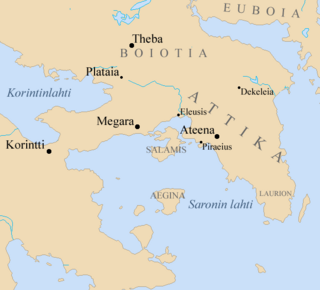 W
WThe Megarian school of philosophy, which flourished in the 4th century BC, was founded by Euclides of Megara, one of the pupils of Socrates. Its ethical teachings were derived from Socrates, recognizing a single good, which was apparently combined with the Eleatic doctrine of Unity. Some of Euclides' successors developed logic to such an extent that they became a separate school, known as the Dialectical school. Their work on modal logic, logical conditionals, and propositional logic played an important role in the development of logic in antiquity.
 W
WMichel Eyquem de Montaigne, also known as Lord of Montaigne, was one of the most significant philosophers of the French Renaissance. He is known for popularizing the essay as a literary genre. His work is noted for its merging of casual anecdotes and autobiography with intellectual insight. His massive volume Essais contains some of the most influential essays ever written.
 W
WThe musica universalis, also called music of the spheres or harmony of the spheres, is a philosophical concept that regards proportions in the movements of celestial bodies – the Sun, Moon, and planets – as a form of music. The theory, originating in ancient Greece, was a tenet of Pythagoreanism, and was later developed by 16th-century astronomer Johannes Kepler. Kepler did not believe this "music" to be audible, but felt that it could nevertheless be heard by the soul. The idea continued to appeal to scholars until the end of the Renaissance, influencing many schools of thought, including humanism.
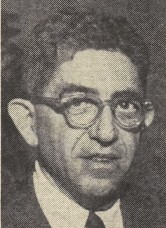 W
WErnest Nagel was an American philosopher of science. Along with Rudolf Carnap, Hans Reichenbach, and Carl Hempel, he is sometimes seen as one of the major figures of the logical positivist movement. His 1961 book The Structure of Science is considered a foundational work in the logic of scientific explanation.
 W
WThe Novum Organum, fully Novum Organum, sive Indicia Vera de Interpretatione Naturae or Instaurationis Magnae, Pars II, is a philosophical work by Francis Bacon, written in Latin and published in 1620. The title is a reference to Aristotle's work Organon, which was his treatise on logic and syllogism. In Novum Organum, Bacon details a new system of logic he believes to be superior to the old ways of syllogism. This is now known as the Baconian method.
 W
WThe Nyāya Sūtras is an ancient Indian Sanskrit text composed by Akṣapāda Gautama, and the foundational text of the Nyaya school of Hindu philosophy. The date when the text was composed, and the biography of its author is unknown, but variously estimated between 6th-century BCE and 2nd-century CE. The text may have been composed by more than one author, over a period of time. The text consists of five books, with two chapters in each book, with a cumulative total of 528 aphoristic sutras, about rules of reason, logic, epistemology and metaphysics.
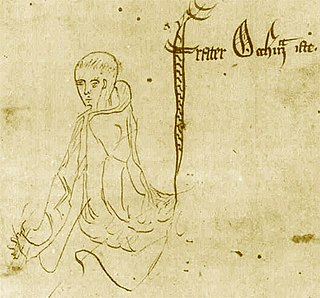 W
WOccam's razor, Ockham's razor, Ocham's razor, or the principle of parsimony or law of parsimony is the problem-solving principle that "entities should not be multiplied beyond necessity", sometimes inaccurately paraphrased as "the simplest explanation is usually the best one." The idea is frequently attributed to English Franciscan friar William of Ockham, a scholastic philosopher and theologian, although he never used these words. This philosophical razor advocates that when presented with competing hypotheses about the same prediction, one should select the solution with the fewest assumptions, and that this is not meant to be a way of choosing between hypotheses that make different predictions.
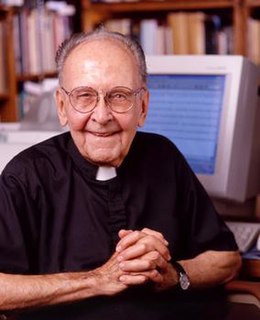 W
WWalter Jackson Ong was an American Jesuit priest, professor of English literature, cultural and religious historian, and philosopher. His major interest was in exploring how the transition from orality to literacy influenced culture and changed human consciousness. In 1978 he served as elected president of the Modern Language Association.
 W
WThe Organon is the standard collection of Aristotle's six works on logic. The name Organon was given by Aristotle's followers, the Peripatetics. They are as follows:
 W
WThe Prior Analytics is a work by Aristotle on deductive reasoning, known as his syllogistic, composed around 350 BCE. Being one of the six extant Aristotelian writings on logic and scientific method, it is part of what later Peripatetics called the Organon. Modern work on Aristotle's logic builds on the tradition started in 1951 with the establishment by Jan Łukasiewicz of a revolutionary paradigm. His approach was replaced in the early 1970s in a series of papers by John Corcoran and Timothy Smiley—which inform modern translations of Prior Analytics by Robin Smith in 1989 and Gisela Striker in 2009.
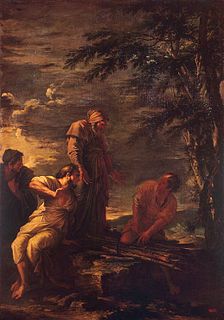 W
WProtagoras was a pre-Socratic Greek philosopher and rhetorical theorist. He is numbered as one of the sophists by Plato. In his dialogue Protagoras, Plato credits him with inventing the role of the professional sophist.
 W
WRamism was a collection of theories on rhetoric, logic, and pedagogy based on the teachings of Petrus Ramus, a French academic, philosopher, and Huguenot convert, who was murdered during the St. Bartholomew's Day massacre in August 1572.
 W
WRhetoric is the art of persuasion, which along with grammar and logic, is one of the three ancient arts of discourse. Rhetoric aims to study the techniques writers or speakers utilize to inform, persuade, or motivate particular audiences in specific situations.Taking place in Athens in the early fifth century, the demos "the people" created "a strategy for effectively talking to other people in juries, forums, and the senate". Aristotle defines rhetoric as "the faculty of observing in any given case the available means of persuasion" and since mastery of the art was necessary for victory in a case at law, for passage of proposals in the assembly, or for fame as a speaker in civic ceremonies; he calls it "a combination of the science of logic and of the ethical branch of politics". Rhetoric typically provides heuristics for understanding, discovering, and developing arguments for particular situations, such as Aristotle's three persuasive audience appeals: logos, pathos, and ethos. The five canons of rhetoric or phases of developing a persuasive speech were first codified in classical Rome: invention, arrangement, style, memory, and delivery.
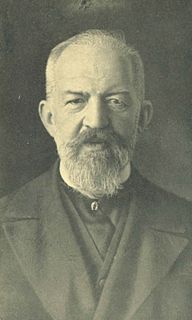 W
WKazimierz Jerzy Skrzypna-Twardowski was a Polish analytic philosopher, logician, and rector of the Lwów University. He was initially affiliated with Alexius Meinong's Graz School of object theory.
 W
WThe questions pertaining to "why there is anything at all", or, "why there is something rather than nothing" have been raised or commented on by philosophers including Gottfried Wilhelm Leibniz, Ludwig Wittgenstein, and Martin Heidegger – who called it "the fundamental question of metaphysics".
 W
WLudwig Josef Johann Wittgenstein was an Austrian-British philosopher who worked primarily in logic, the philosophy of mathematics, the philosophy of mind, and the philosophy of language. He is considered to be one of the greatest philosophers of the modern era.
 W
WZeno of Elea was a pre-Socratic Greek philosopher of Magna Graecia and a member of the Eleatic School founded by Parmenides. Aristotle called him the inventor of the dialectic. He is best known for his paradoxes, which Bertrand Russell described as "immeasurably subtle and profound".